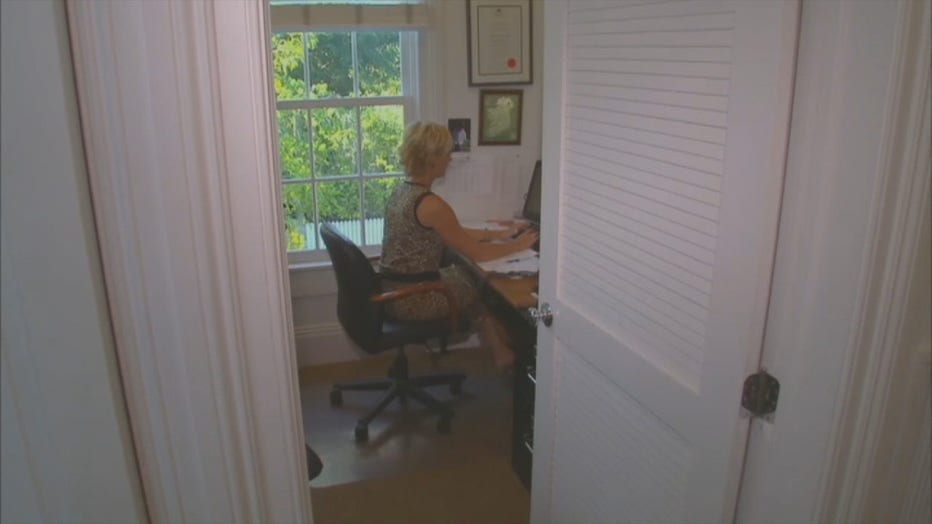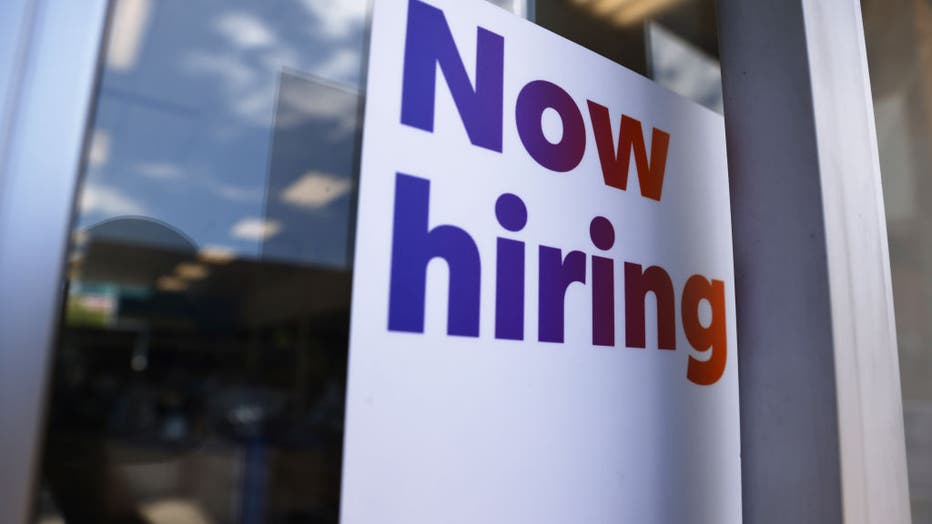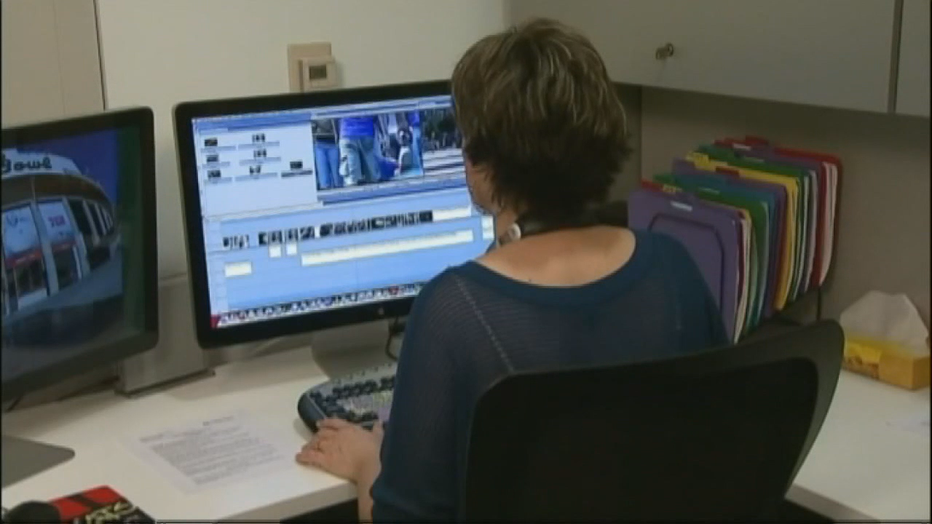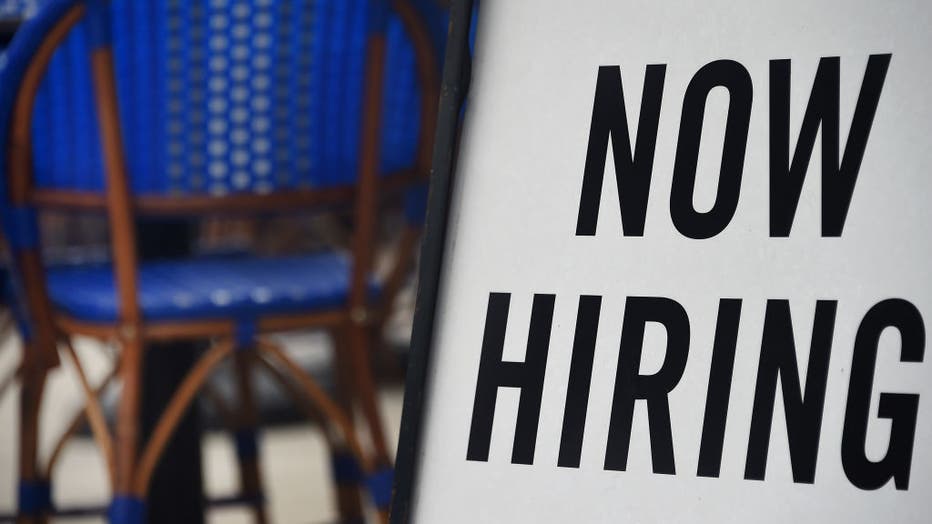Returning to work not easy for some who lost jobs to COVID
MILWAUKEE - Karen Miller wants to work.
Ideally, the 65-year-old would return to her old job of digitizing government documents for Data Dimensions in Janesville, Wisconsin. But she can’t. The company laid her off in March 2020 when COVID-19 struck, and it later cut more than 100 employees after losing a contract.
As the state requires, Miller since May has conducted at least four weekly "work search actions" to keep receiving the state’s maximum for unemployment benefits: $370 per week plus whatever the federal government kicks in. She would search for jobs regardless of the regulations, she said, although a heart condition limits her options.
But she said entering her criteria into work search only returns listings for jobs she can’t perform, including physically demanding warehouse and delivery work and positions for professions that require licenses that she lacks.

The search has yielded a few leads and interviews but no jobs. She suspects her age has something to do with it.
In earlier months of the pandemic, Wisconsin lawmakers broadly championed the cause of suddenly jobless workers like Miller — even as Republicans and Democrats blamed each other for an unemployment insurance system that drowned beneath a flood of claims.
As the Department of Workforce Development struggled to process claims last year, Miller waited 11 weeks for her first unemployment check. That forced her to spend down her savings and tap into Social Security early — permanently reducing her monthly payments.
But few stories like Miller’s have circulated in media coverage of the late-pandemic economy — as vaccinations allow businesses to reopen and a spotlight shines on their frantic search for workers.
More than two dozen states have ended early a federal program that adds $300 to weekly unemployment checks to help the recipients weather joblessness during the pandemic. Lawmakers in those states and some business owners claim that the extra benefits — already scheduled to end nationwide in September — remove motivation for people to look for work.
Wisconsin’s Republican-controlled Legislature also seeks an early end to the extra payments, with Assembly Speaker Robin Vos calling the program a "disincentive to work" that prompts "mischief" among the unemployed. The Legislature approved a bill to end the program, but Evers vetoed it, saying proponents lacked evidence that it would alleviate workforce shortages.
Miller hears how politicians have changed their descriptions of the jobless.

(Photo by Mario Tama/Getty Images)
"We aren’t a bunch of lazy people," she said. "We were workers who lost our jobs and now are being asked to do things that we have no experience with."
Miller was one of 10 people who spoke to WPR and Wisconsin Watch about rebuilding their lives after losing work during the pandemic. Thirteen others contacted WPR’s WHYsconsin project with questions about accessing overdue unemployment aid and recounted struggles to find work; they either did not respond to inquiries or declined to be interviewed, citing stigma surrounding the still-unemployed.
The interviews illustrate lingering challenges and tough choices in efforts to rejoin the workforce. Some are still waiting for the state to deliver unemployment compensation from the pandemic’s earliest days.
During her wait last year for unemployment benefits, Miller feared she would lose the Rockford, Illinois, home she shares with her 38-year-old son and 18-year-old grandson.
Miller and her son previously worked across the border in Janesville. That’s why they turned to the Wisconsin DWD, which processes unemployment claims, after the pandemic threw both out of work. But Miller and her son — who waited 13 weeks to get his compensation — were among thousands left waiting on DWD for months or longer.
Worried about her mortgage, Miller applied for a federal pandemic program that allowed most homeowners to defer payments for up to 18 months without penalty — just in case she needed it. Instead, the Millers stayed current on the mortgage by depleting their roughly $10,000 life savings while waiting for unemployment aid.
Miller also saved about $120 monthly on car payments by selling her 2014 Kia Soul back to the dealership and leasing another, less fancy Soul. But money remained tight when she turned 65 in September, even after her unemployment benefits began to arrive. So she tapped Social Security.
Any bit of income has helped the family get by, including federal unemployment supplements and stimulus payments. Those and other policies — including state and federal eviction moratoriums — have profoundly benefited Americans harmed by the pandemic. A University of Michigan analysis of U.S. Census Bureau data found that federal pandemic relief helped large swaths of Americans stave off hunger, anxiety and depression.

U.S. employers added 850,000 jobs in June, and many came with higher wages, particularly in the leisure and hospitality industry. Still, the country has 6.8 million fewer jobs compared to February 2020, before the pandemic shuttered much of the economy.
"We’re reaching the point when vaccinations are becoming widespread, and people are feeling comfortable going back out into the world again," said Julia Raifman, an assistant professor at Boston University and principal investigator of the COVID-19 U.S. State Policy database. "I think it’s really important to see people through (with pandemic assistance) until they can connect with jobs that will be good over the long term."
Economists offer mixed views on whether the most recent federal unemployment supplement is a major disincentive to work. And Indeed Hiring Lab research found that job search activity last May — measured in clicks on postings — temporarily and only slightly increased in states that announced an early end to federal supplements. It cites evidence that job searching returned to normal by the eighth day after the announcements.
FREE DOWNLOAD: Get breaking news alerts in the FOX6 News app for iOS or Android
Meanwhile, search activity is up in some states that opted out of enhanced benefits in June and down in others — in some cases below national trends, Indeed reported in late June.
After Jay Baukin, 63, lost two months of work early in the pandemic, Goodwill rehired him to his part-time position in June 2020, but DWD took more than a year to deliver unemployment aid. Baukin, who suffered a traumatic brain injury in a car crash 18 years ago, relies in part on federal Social Security Disability Insurance payments. But the monthly checks of roughly $1,500 don’t fully cover his bills in Dane County. Baukin called his wages from working 24 hours a week "essential" for survival.
"Otherwise, I’d be at the street corner with a sign saying ‘I’ll work for food,’ " he said.
Unlike most states, Wisconsin bars workers on federal disability from collecting regular unemployment aid, and DWD initially extended that ban to PUA before reversing course last summer. Baukin has spent a year seeking that compensation.
In May 2021, a state administrative judge finally ruled in his favor, but Baukin says it took more than a month to see the aid; he was told that DWD has not loaded the judge’s notes into its antiquated computer system, prolonging the wait. Out of frustration, he stopped checking his online portal with the department, so it took two weeks to realize he’d been paid.
Pierre Young, 51, of Milwaukee is struggling to make rent after losing his part-time ministry warehouse job and being denied jobless compensation. His federal disability status torpedoed his regular claim, and he lost out on PUA after being told that he failed to submit his pay stubs fast enough. He is appealing that decision but sold his two trucks to pay bills as he waited. The 1998 Chevy Tahoe and 2002 Dodge Ram pickup —"a beater with a heater" — netted about $800 together.
But Young’s newfound lack of transportation is limiting his work options, making it hard to even score an interview, he said. He’d love to take a 12-week construction job he found, but getting to the job site in Iowa would be impossible.

(Photo by OLIVIER DOULIERY/AFP via Getty Images)
A felony conviction on his record — a barrier for many Wisconsinites — is likely further harming his search, Young said, but "my lack of a vehicle is really what’s got me in a box."
"I’ve got to have a roof over my head," he added. "So I had no choice (but to sell the vehicle), you know?"
Across the border in Rockford, Miller said she’ll take any job she can perform.
"I’d be willing to work for just about minimum wage," Miller said. "I do have my Social Security. But I need to supplement that. It’s not enough to live on."
___
The nonprofit news outlet Wisconsin Watch provided this article to The Associated Press through a collaboration with Institute for Nonprofit News.
___

